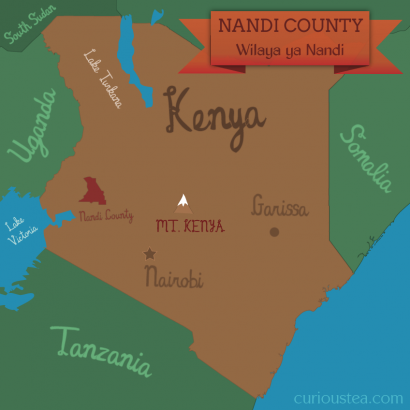Welcome to the October 2021 edition of the Curious Tea subscription! Here’s a closer look at the four exciting new teas that we are sharing with our subscribers this month.
The first light tea this month is an early Second Flush ‘Umami’ Oolong from Gopaldhara Tea Estate in Darjeeling that has higher oxidation resulting in a mellow flavour.
The second light tea is another tea from Darjeeling, this time a ‘Spicy’ white tea from Rohini Tea Estate crafted from clonal plants descended from a wild tea plant of unknown origin.
For the dark side of the selection we have a fine Organic Mi Lan Xiang Oolong from Guangdong Province of China that delivers classic floral honey flavours.
Finally, the last tea we are featuring this month is a classic fruity black tea from Tumoi Teas Cooperative in Kenya that is easy-going and flavoursome.
Our Discovery subscription boxes contain 10g taster pouches of all of the above mentioned teas. If you are a subscriber you will benefit from a 10% discount on all teas from our tea shop!
Let’s get into further detail on these teas featured in our October tea subscription boxes.
Darjeeling Gopaldhara Umami Oolong
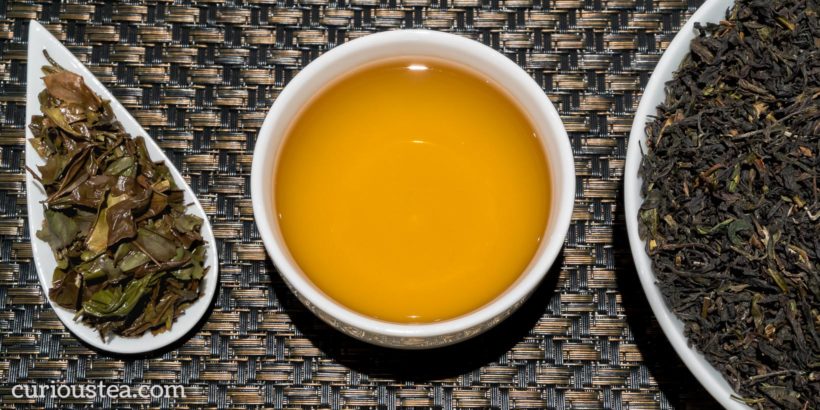
Darjeeling Gopaldhara Umami Oolong is new experimental oolong from Gopaldhara Tea Estate. It is an early Second Flush tea, picked in May when the local climatic conditions mean that the plants are experiencing much slower leaf growth. The variably oxidised leaf produces a mellow liquor that is just a little lighter of the usual medium oxidised oolong, with a fruity flavour and a savoury finish. This batch is from the May 2021 harvest, which was the very first time that this tea was made!
Like all our of Gopaldhara teas, we source this tea directly from Rishi Saria, the owner and director of Gopaldhara and Rohini Tea Estates. Gopaldhara Tea Estate is nestled in the Mirik Valley, in the Himalayan foothills, and is one of the highest tea estates in Darjeeling with elevations of up to 2,100m. It is renowned for producing teas of exceptional quality and very often quite unusual character. The estate is also known for innovation, with new types of tea that utilise new and traditional production methods being developed every season.

This Umami Oolong definitely falls within the new experimental output from Gopaldhara. The climate conditions in May, especially at lower and medium elevations are quite dry with low humidity, not much rain but good temperature. These conditions coincide with a greenfly attack, leading to a slower leaf growth. To Rishi this presents a great opportunity for making oolong tea! Although some of their oolong production is really top quality, this tea presents a nice daily drinking alternative that still delivers an exciting and quite different flavour.
Darjeeling Gopaldhara Umami Oolong consists of smaller leaves with a few tips that have a mixed colour and varying degrees of oxidation. It produces a bright golden liquor with a light mineral and fruity aroma. The mellow flavour is sweet and fruity with some light woody savoury notes and a herbaceous edge with a hint of mint. The aftertaste is long-lasting with a herby and savoury taste and a mouthwatering finish. While the ‘Umami’ reference in the name is not immediately obvious in the flavours (it is definitely not the type of umami taste you find in Gyokuro), the savoury and herbaceous touches point to that aspect and are definitely intriguing. In fact these are somehow a little reminiscent of a complex savoury and woody white tea.
This tea is best brewed at 90°C for 2 minutes and can be brewed 2+ times. Like all top grade teas from Gopaldhara and Rohini, you can try experimenting with gongfu brewing.
You can also buy Darjeeling Gopaldhara Umami Oolong tea in our online shop.
Darjeeling Rohini Spicy White
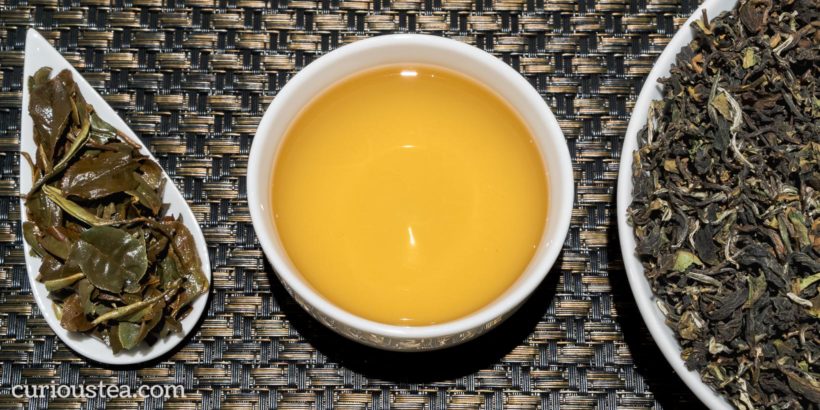
Darjeeling Rohini Spicy White is an unusual white tea from Rohini Tea Estate made from clones of an unknown wild tea plant. This is a rare opportunity to try this unique tea as a very minimal quantity is produced every year. The plants are carefully picked and the leaves are minimally processed to bring out a spiced aroma and profile. This particular lot is from the March 2021 harvest.
Rohini Tea Estate is located along the route that connects the towns of Siliguri and Kurseong. Surrounded by a beautiful natural environment, this estate produces tea from relatively young trees. The estate has had a chequered past, not actually producing any tea for a about 30 years after it was shut in 1962. Recently it has been replanted with young tea trees, so sometimes it is referred to as the youngest tea estate in Darjeeling. It is now going from strength to strength and is producing more and more interesting and higher quality teas. Most recently Rohini have been elevating the quality and flavours by focusing on smaller hand processed batches and more unusual types of tea.
This Rohini Spicy White tea is a prime example of an unusual and small batch hand processed tea from this estate. The plants that are used for this tea are clones of a wild tea plant of unknown origin. When the tea replanting at Rohini was done around the turn of the century, a wild tea tree was found growing nearby that provided the cuttings for these new clonal trees. The history or the type of this original wild plant is unknown. As the newly planted trees were particularly hardy and strong, they have become known locally by the name Bhime after Bhim, a mythological character from the Mahabharata epic who was considered to be very strong.
While the plants are strong, unfortunately the leaves also produce an very rough flavour when made into a fully oxidised tea. As there is a limited amount of plants, there is also not enough output to produce a green tea. Hence this Spicy White tea was developed. It undergoes very minimal processing as after picking it is simply dried and slightly rolled by hand. The processing has to be very delicate in order to keep the spicy flavour that can easily fade.
This Darjeeling Rohini Spicy White has neat leaves and consists of smaller leaf plus tips. It produces a bright clear liquor with a light golden colour and an attractive but most unusual spicy aroma. It is best described as the smell of cayenne pepper powder. The clean taste is complex and bold. It has vegetal notes of green capsicums, dried hay and a spiced top note. The aftertaste is smooth and lasting with a touch of dryness. A particularly fascinating tea!
This tea is best brewed at 90°C for 2-3 minutes and can be brewed 2+ times. Like all top grade teas from Gopaldhara and Rohini, you can try experimenting with gongfu brewing.
You can also buy Darjeeling Rohini Spicy White tea in our online shop.
Dan Cong Organic Mi Lan Xiang
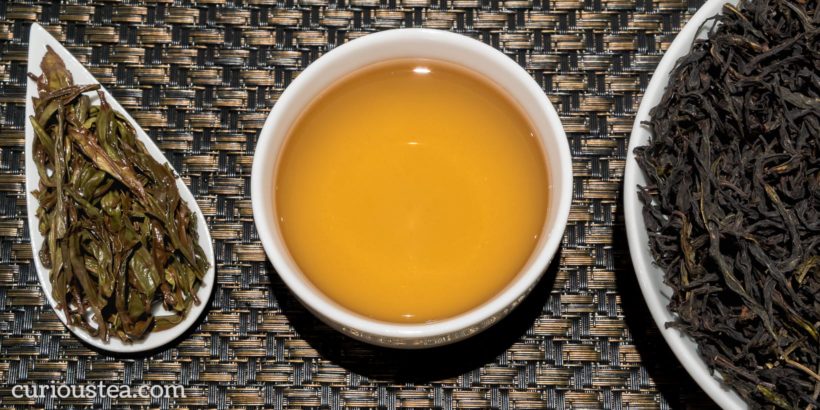
Dan Cong Mi Lan Xiang (单枞蜜兰香), known as a Honey Orchid Fragrance oolong, is an organic oolong from a fully certified organic tea garden of Master Huang. It is hand picked from local Mi Lan Xiang cultivar trees that are about 15 years old and are grown under perfect organic conditions near Gaoyuan Village at an altitude of approximately 600 metres. Specially crafted for a floral honey aroma and taste, it delivers a complex liquor with a lasting lightly baked, mineral finish. This current batch was harvested and processed in March – April 2021.
You may be interested in our other Dan Cong teas from Master Huang, which are available in our usual packaging or in two tea flight boxes that contain 6 different teas each. As there are 12 different tea types (plus the two selection boxes), these products will be going live gradually in the second part of October 2021!
Mi Lan Xiang Oolong is known not only as Honey Orchid Oolong but also by quite a few other different names in the West. Due to the floral and sweet nature of the tea and relative abundance of the growing plants of this cultivar, it is perhaps one of the most famous and popular Dan Cong oolong teas. This particular tea is specifically picked from Mi Lan Xiang cultivar trees, which are plants that have been selected through cuttings from original Shui Xian (水仙) cultivar trees. Most Dan Cong cultivars have a long history going back, sometimes to just one single mother tree. As these have not been ‘developed’ by plant breeding or research stations, there is no standardisation. But as these plants are propagated by cutting, the descendant trees bear most of the features of the parent trees. This has allowed careful selection process to occur over time, which allowed for the desired plant’s features to pass to the newly planted trees.
Location of the organic tea garden of Master Huang:
This Organic Mi Lan Xiang Oolong has neat large leaves that are dark in appearance and are presented in the classic twisted shape. When brewed, the leaf shows a mixed dark green to light brown colour indicating medium level oxidation. The wet leaf releases a mineral and floral honey aroma that also translates to the aroma of the liquor. It has a smooth golden taste with charismatic floral honey notes. This is nicely complimented by complex sweet and lightly baked fruity notes. This tea produces a mouthwatering aftertaste that is lasting and has a typical mineral edge. While the aftertaste is not as strong as on some other Dan Cong teas, the brisker nature of it makes this tea suitable for both Dan Cong fans and novices alike as it is a little more forgiving when it comes to brewing.
Brew western style, at 90°C for 3-4 minutes 3+ times. For best results we highly recommend gongfu style brewing. For gongfu, we recommend using traditional glass or ceramic teaware or a gaiwan. Or you can use your favourite yixing or chaozhou tea pot that already performs well with Dan Cong teas. Make sure to preheat all teaware thoroughly. Use water brought to 100°C and a very high tea to water ratio of 1g per 10ml. We find anywhere between 7g (more conventional gongfu) and 10g (more local chazhou gongfustyle) per 100ml to be a good measure, depending on your taste. As an alternative visual guide, your brewing vessel should be about 75% full with leaves. Start with 10 second infusions for the first 4 infusions. Then start slowly increasing the infusion time after that. You can adjust the quantity of leaf and infusion time to your taste, however the bittersweet complexity that comes through when using the traditional method is very much a desired feature in Chaozhou.
You can also buy Dan Cong Organic Mi Lan Xiang tea in our online shop.
About our Dan Cong oolong teas from Master Huang.
Master Huang is an expert tea maker and has two gardens (one fully organic and one conventional) growing various varieties of Dan Cong trees. The organic tea garden is located in Gaoyuan Village (高原村) where the trees are approximately 15 years old. This garden is certified organic to EU and USDA standards. The conventional garden is located in Tianliao Village (田寮埔) where the trees are older, with most of them being approximately 30 years old. Both gardens grow a wide variety of Dan Cong cultivars used in making various traditional oolong teas. All trees are only handpicked, with most being picked in April; although the full picking season extends from March to May.
Dan Cong oolong undergoes a complex processing after picking, which starts off with withering in the sun on bamboo screens for 20-30 minutes, generally between 15:30 and 17:30 in the afternoon when the temperature is around 22-28°C. After the initial withering in the sun, the tea is brought indoors and allowed to cool in a well-ventilated place that results in reduction of moisture in the leaves, while increasing the aroma and flexibility of the leaf. This is then followed by a process known locally as ‘touch green’ (peng qing 碰青) where the tea leaves are shaken together to induce cell bruising of the edges of the leaves and achieve light oxidation. This process is done both by hand and mechanically with machines, usually at least 5 times and is repeated every two hours. In between each repetition the leaves are allowed to rest, promoting loss of water, increase in temperature and softening of the cells. Once the desired bruising and moisture reduction has been achieved, the leaves are pan-fried for about 15 minutes to stop oxidation. The leaves then undergo rolling to achieve the classic twisted Dan Cong shape. The rolled leaves are then dried to remove any residual moisture left.
Finally and most crucially the tea undergoes a roasting process, which is the main contributing factor to the variety of Dan Cong flavours. While of course the choice of the cultivar, the picking time and standard and initial processing all play a role in the final taste, the roasting process is really what brings out the wonderfully diverse flavours of Dan Cong teas. The roasting process differs for each tea and some will be more heavily roasted while others will go through a low level of roasting. Generally, the temperature is 90-110°C and the first roasting stage is about 2 hours. The second and third baking would be around 12 hours or more. Each batch of tea would be baked differently in order to achieve the desired outcome. Hence the skills and knowledge of the tea master are paramount in achieving the perfect flavour.
Tumoi Nandi Hills Black
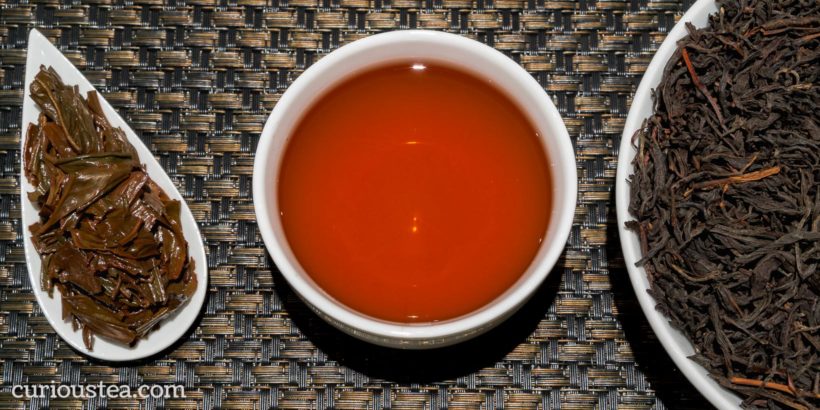
Tumoi Nandi Hills Black is an easy-going tea with a classic black tea profile that would appeal to most drinkers. Grown around Nandi Hills at an altitude of over 2,000 metres by the Tumoi Teas Cooperative without the use of pesticides and processed using traditional orthodox tea production methods. This Tumoi Nandi Hills Black is from the summer 2020 harvest. Unlike our Purple Green tea from Tumoi, this one does not come from the new purple cultivar. Instead, a more conventional tea plant is used to produce a black tea that is smooth and balanced.
Tumoi Teas Cooperative is a relatively new type of tea farmer cooperative in Kenya that focuses on creating beautiful tea while also supporting local farmers and the local community. While a large proportion of tea plantations in Kenya are owned by multinational corporations, Tumoi Teas is completely run and managed by small-scale tea farmers.
Tumoi specifically focusses on producing high-quality orthodox teas. The rationale behind this is that the Kenyan tea industry is dominated by CTC (cut-tear-curl) teas that are destined for bags. The CTC market is very volatile with large corporations buying up the majority of CTC tea and generally trying to drive the prices down. This results in very little return for the farmers. In contrast, farmers that grow small scale but high quality teas are more in control over pricing and enjoy much fairer returns for their labour.
This Tumoi Nandi Hills Black has rather mixed leaves in appearance and size. The dark amber liquor has a slight fruity and malty aroma. The flavours are well-balanced and smooth. The overall fruity profile has notes that are stony, fruity, malty and mineral. The aftertaste is pleasant and not overpowering, with no astringency and only a touch of dryness. The character overall has a very classic black tea taste that would appeal to many tea drinkers. It makes an excellent morning breakfast tea, especially if you would like to take it without milk.
It is best brewed at 90°C for 3-4 minutes and should be brewed around two times depending on your taste. If you do prefer a stronger brew, this tea will stand a longer infusion and higher water temperature well to produce a much strong cup.
You can also buy Tumoi Nandi Hills Black tea in our online shop.
We really do hope that you enjoy this tea selection for October and are looking forward to the selection in our next box. Our November box will feature two Jin Xuan cultivar teas from the highlands of Doi Mae Salong in Thailand; one processed as a classic Milk Oolong, while the other is made into a highly oxidised ‘Ruby’ version. We will also feature a rare early spring Long Jing Dragon Well from the San Xia terroir of northern Taiwan. And finally the last tea that we selected is an intriguing Da Li Cha from Yunnan Province of China made from the unusual Camellia sinensis var. taliensis plants.
If reading this has made you curious about our teas, but you don’t yet subscribe to a monthly tea selection, you can sign up for our tea boxes in just a few clicks. We ship worldwide from London, UK.
We always love to hear from you, so if you have any questions, suggestions or just want to chat about tea, email us at contact@curioustea.com, via our Facebook page or via Twitter.
You can also follow us on Instagram for pretty tea photos.
Happy tea discoveries!


